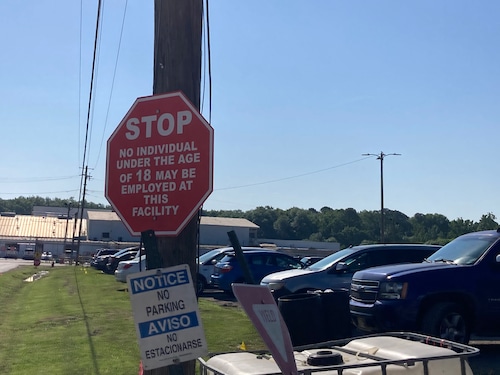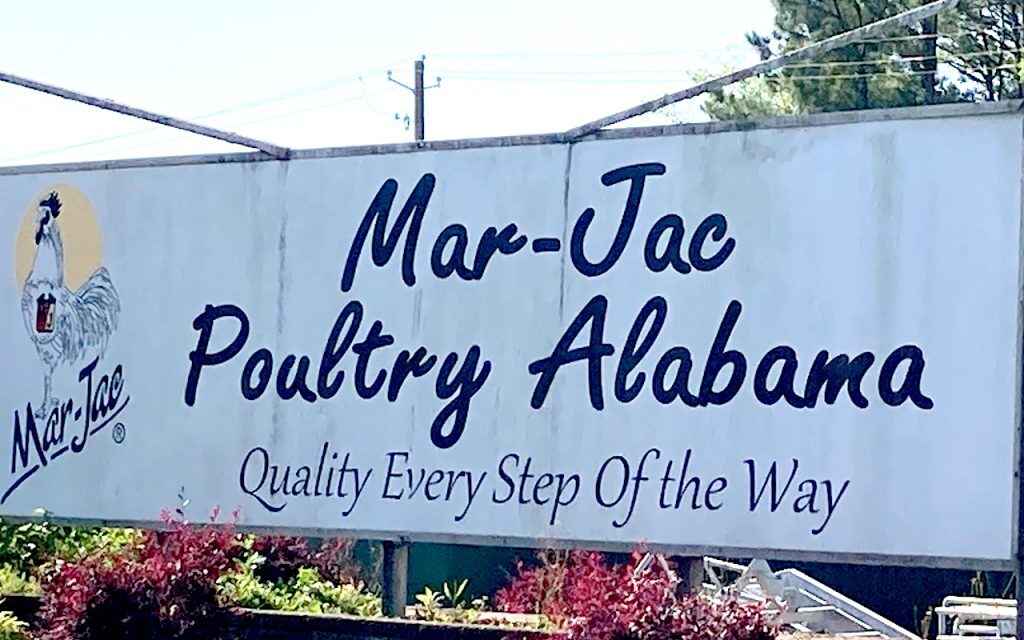Federal investigators say they found six underage workers at a large poultry plant in north Alabama and are asking a judge to stop the sale of chicken produced with child labor.
Lawyers representing the plant in Jasper say the move is unprecedented and would create undue hardship for more than 1,000 workers at Mar Jac Poultry, the largest employer in Walker County.
Attorneys for the U.S. Department of Labor filed a civil action against Mar Jac on May 7 to stop the production and sale of all goods tainted with child labor through May 31.
“On May 1, 2024, investigators with the Wage and Hour Division, U.S. Department of Labor, discovered oppressive child labor at Defendant’s poultry processing facility, namely children working on the kill floor deboning poultry and cutting carcasses,” the court documents said. “The children had been working at the facility for months, and Defendant continually removed goods from the facility the entire time.”
Attorneys for Mar Jac Poultry said in court filings that the employees had used forged documents, passed the E-verify system, and were terminated after their real ages came to light.
Lawyers for Mar Jac also said the teens were not employed in hazardous areas and worked in areas hanging chickens and removing wings, which didn’t require the use of heavy machinery. The operations where the children worked resembled a commercial kitchen more than a kill floor, the company claimed.
But the Labor Department announced last year it would use the “hot goods” provision to prevent companies from profiting from child labor. The company argued that forcing the temporary pause in chicken sales would hurt other workers.
“A 30-day ‘hot goods’ injunction would result in approximately 1,000 employees being laid off for 30 days,” the company said in court documents “require the destruction of millions of chickens placing them in landfills, the destruction of a million pounds of meat, interrupt the delivery of feed to growers and the delivery of birds for processing, result in all of the chicken house to miss a full cycle and the resulting economic disaster to the farmers, causing seismic economic consequences on the community.”

An attorney for Mar Jac did not respond to requests for comment.
It’s not the first time Mar Jac has faced penalties for labor violations.
The company, which is headquartered in Georgia and has locations in Mississippi and Alabama, received fines of more than $200,000 after a 16-year-old worker in Hattiesburg, Miss., died while cleaning machinery. The teen was pulled into a machine in the deboning area that hadn’t been fully deactivated, according to OSHA.
Debbie Berkowitz, an expert on worker safety in poultry plants, said child labor became a big problem during the COVID pandemic when plants lost many employees.
Enforcement of workplace safety regulations decreased before the pandemic and some plants began hiring teens under the age of 18, Berkowitz said. Federal laws prohibit 16- and 17-year-olds from working in most meat and poultry processing jobs.
Reporting by The New York Times found that an increase in children and teens immigrating from Mexico and Centra America fueled an increase in child labor.
Berkowitz said the increase in child labor cases has pushed the Department of Labor to impose tougher penalties. In March, the agency required a Tennessee company to set aside $1.5 million in profits as a punishment for using illegal child labor.
The investigation began when the agency received a tip that workers under age 18 were employed hanging live chickens on hooks attached to conveyor belts, documents said. Investigators found two 16-year-olds and two 17-year-olds working on a floor where workers eviscerated and hung chicken carcasses. In later court filings, attorneys said two more underage employees had been identified.
Berkowitz said the teens were working on the “kill floor,” one of the harshest environments in the plant and an area where workers face high risks of injury. She said the company was already under scrutiny after the death in Hattiesburg last year.
“To then find that there are kids in Mar Jac in the neighboring state is just showing that this is not a one off,” Berkowitz said. “That this is how this company does business. That they just thumb their nose at the law.”
In a court filing, lawyers for Mar Jac said the company should not be barred from selling or shipping chicken because a handful of underage workers used falsified documents.
“If the District Court grants a TRO prohibiting the transportation of tens of millions of pounds of chicken products and throwing a thousand workers out of their jobs based on the discovery of three alleged child labor violations already conclusively abated, it will be boldly going where no court has gone before,” the filing said.
Berkowitz said the recent cases against Mar Jac show the company has a pattern of employing underage workers.
“There wouldn’t be children in these plants if the companies didn’t put out the word that they would look the other way,” Berkowitz said.











